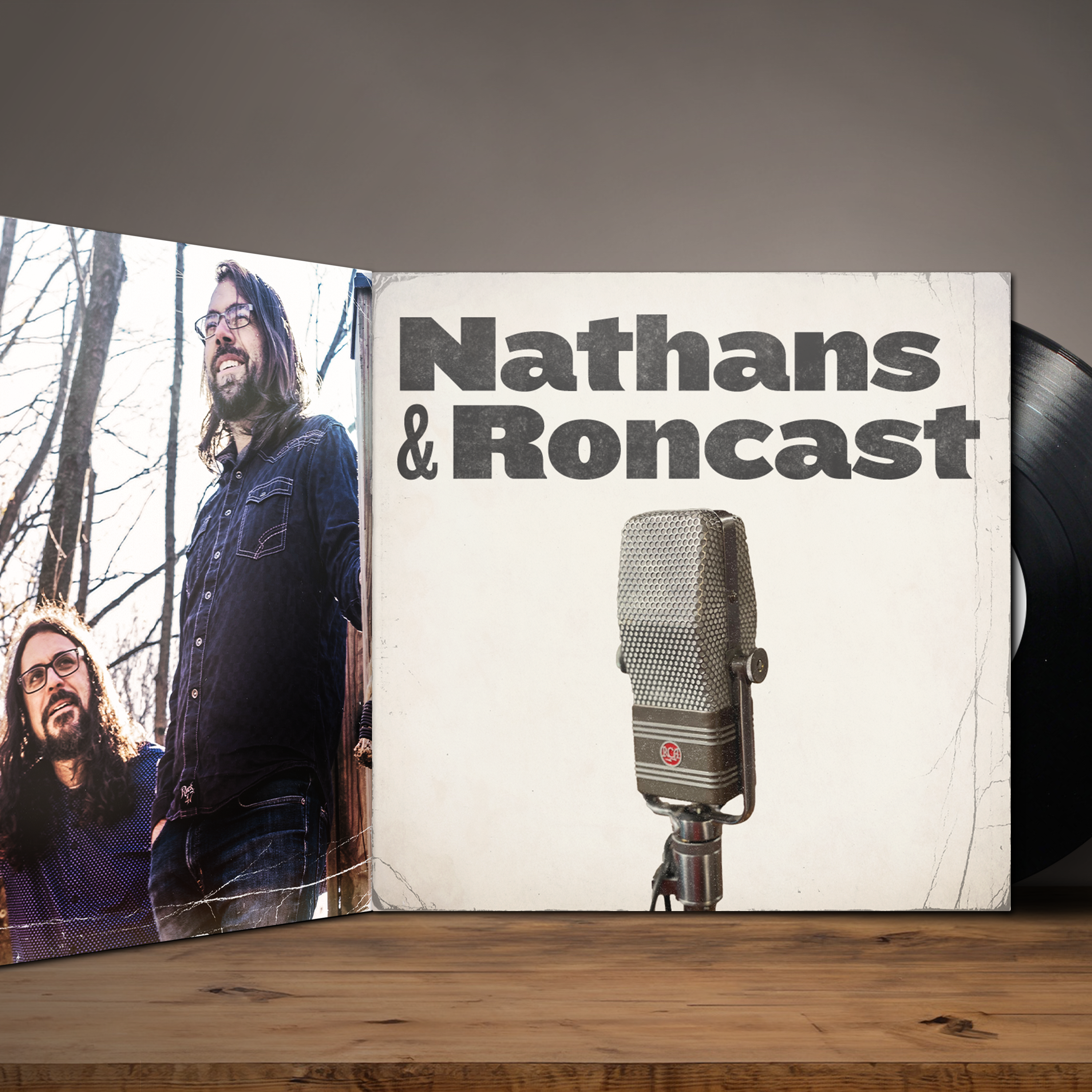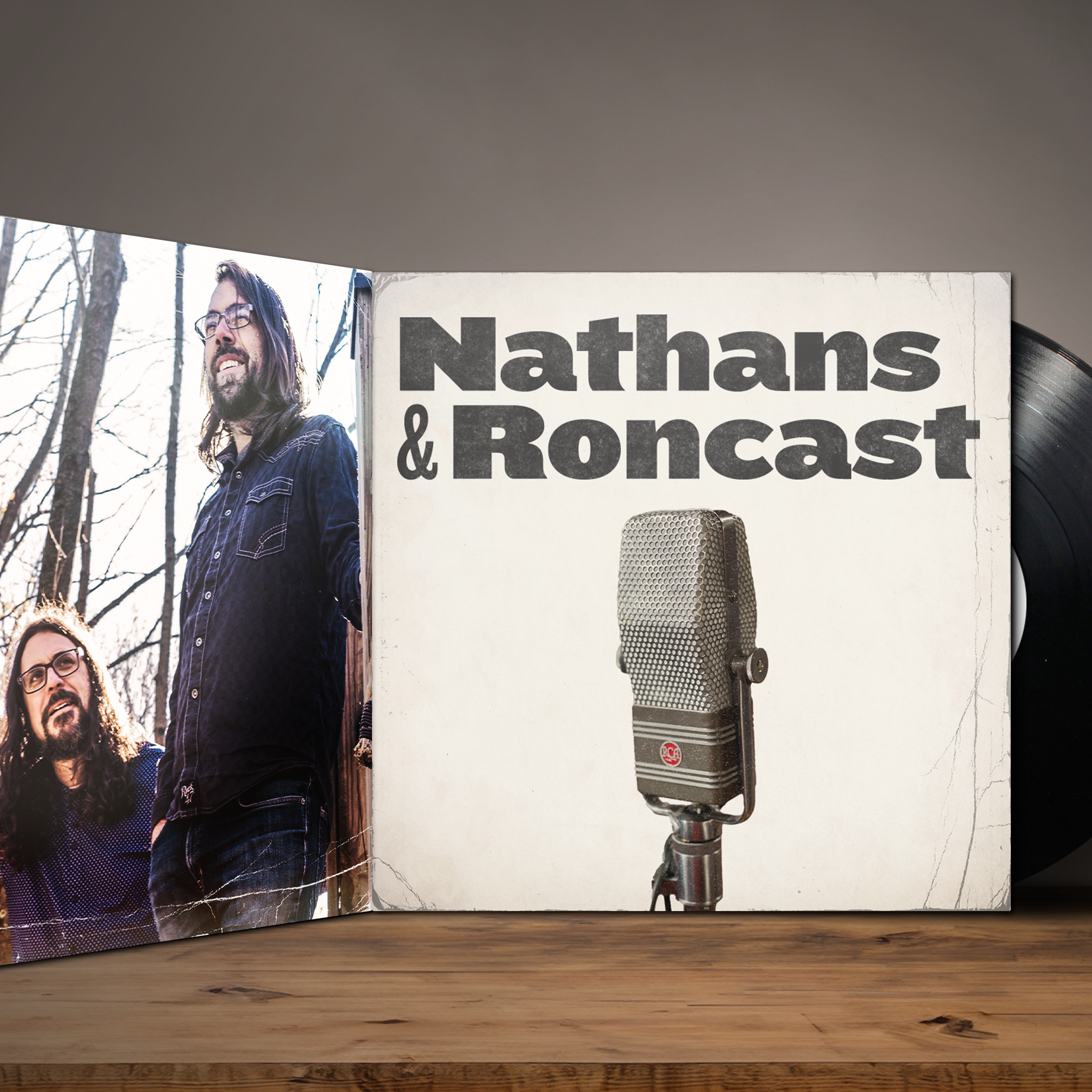Episode Transcript
[00:00:00] Foreign hello, this is Aaron Nathans from the Nathans and Roncast, a podcast about the songcraft and musicianship behind the songs we love. And if you're in the Chicago area, Michael and I would love to see you on March 8th at St. Tim's Coffee House in Skokie. This is a great folk music series and we're honored to play it. For more information, go to sttimothyskokie.org that's st.timothyskokie.org I'm betting that if you love songwriting like I do, you've probably seen the Bob Dylan movie A Complete Unknown. I went out and saw it on Christmas Day, the first day it was open and I really liked it, especially the acting, the music, and watching all those historical moments unfold right before my eyes during these chaotic times. There's a certain comfort in having something like this to lean on. You know exactly how it's going to turn out. These songs, which I've started to take for granted, are comfort food. But there's one thing about this movie that bugged me a little, even made me knowingly chuckle. Because no matter how many filmmakers try and capture the process of songwriting, it's a nearly impossible task. It's been the subject of books, podcasts, lectures and patter from the stage, and even small talk over dinner. And yet you just can't pick pin it down. Where do the songs come from? And where do his songs come from? I know Bob is still with us, but even he would tell you he can't write like that anymore. And so old Bob would join us in asking, where did those songs of his come from? The movie does not answer that question, or really even try to. It just takes it as a given that this fellow had a gift. And as great as the people around him were, they did not share in that gift. In the words of another great songwriter, Leonard Cohen, if I knew where the good songs were, I'd go there more often. It's a mysterious condition. It's much like the life of a Catholic nun. You're married to a mystery. Now, I've seen more than one music biopic in which the lead character sits down with a pad of paper, looks off into the corner, smiles, and starts moving his pencil around. Inevitably, in the next scene, a minute or two later, they're launching into one of their greatest hits. Wow, you just watched them write the times. They are a Changing or Bohemian Rhapsody. Well, to me, that feels like lazy filmmaking, because if you're going to try and capture the songwriting process, it's more than just sitting down with a pad in a room. Depending on the writer, it can be a rapid fire flurry of words and then winnowing them down into verse, matching it with chords in a melody and and then shaping it in the back of your mind as you walk down the street, walking your dog or running the conditioner through your hair in the shower. It's playing the song over and over and filing down the rough edges, playing it before a friendly audience and seeing what works and then making those final tweaks before. You play it for someone at the record company who gives you their unsolicited advice, or you play it for your girlfriend who gives you the encouragement you need to wrap your hands around this song and not let go, as well as that one missing piece that the song needs to fall into place to become what it is destined to be. Now, if somebody really wanted to do a movie about how songwriting works, I don't think it would be terribly compelling cinema, because songwriting is an inner process. It's not so much what you say or do, it's what you think. And nobody wants to pay 20 bucks to sit in a darkened theater and watch someone think. Perhaps the most vivid display of songwriting I've seen on a screen is Peter Jackson's epic Beatles documentary, Get Back. Cameras were rolling throughout the chaotic sessions that led to the Beatles album Let It Be, and most of what we see is music being played and the passive aggressive tensions between the band members that ultimately led to the band's breakup. But in one scene, Paul McCartney arrives first at the studio and he's waiting for the others to get there. He's puttering around with his guitar and suddenly you see the song Get Back start to materialize right before your eyes. The song wasn't there one moment, and its bones were there the next. You see the context and the conception. Words and music for the chorus arrived at the same time. You didn't see the wheels turning in Paul's head, but maybe that's the point. The cameras had been there long enough for him to tune them out. He was bored enough to not be thinking about how long he had, and he was musically switched on enough to be open to the universe handing him a so. And this is one secret of songwriting that the movies don't show you People, even songwriters, don't simply have songs thrust upon them. They have to be open to it. And that means writing a lot. That means noticing that moment when an idea comes to you. Not necessarily a lyric or a melody, but the concept or sensibility around which you build the song. And when that moment happens, it means having the presence of mind to notice that it's happening and capturing it before it slips away. Maybe it happens in your sleep, just as you're awakening in the middle of the night. Or maybe it happens in conversation, something you said without thinking. And then you think, oh, there have been movies made about the greatest songwriters of our time, but they're never really about the one thing that makes these people as compelling as they are. How they write the songs. If someone could do that, I'd pay to see that movie. This is Aaron Nathans. Thanks for listening. Talk with you soon. Peace.


